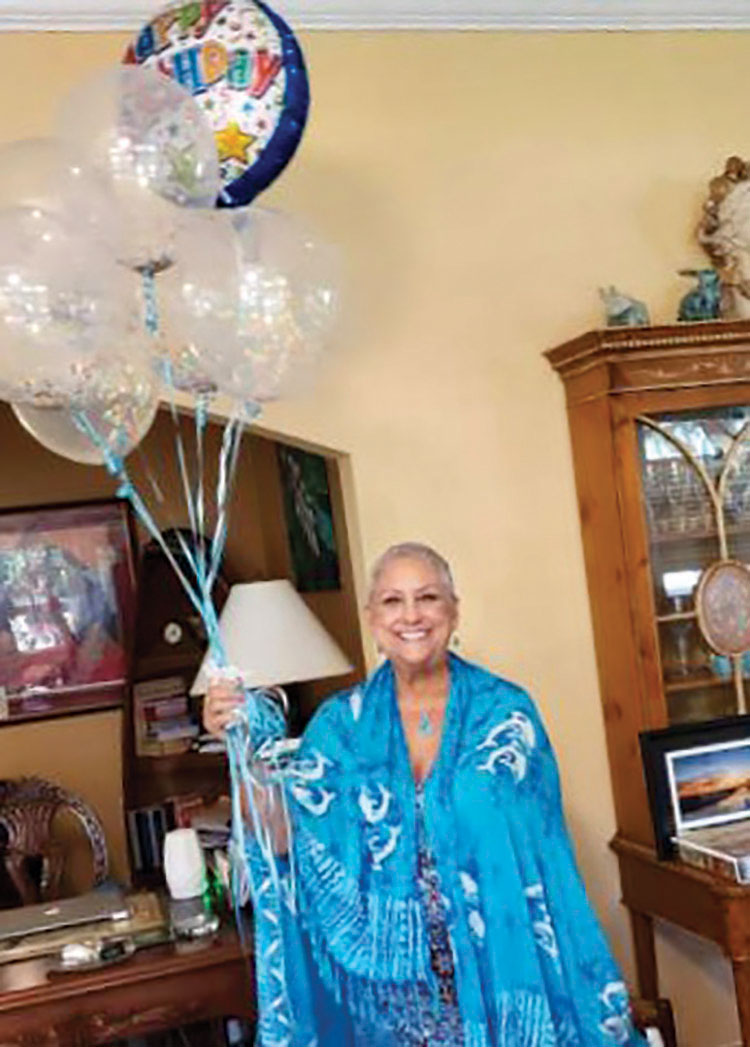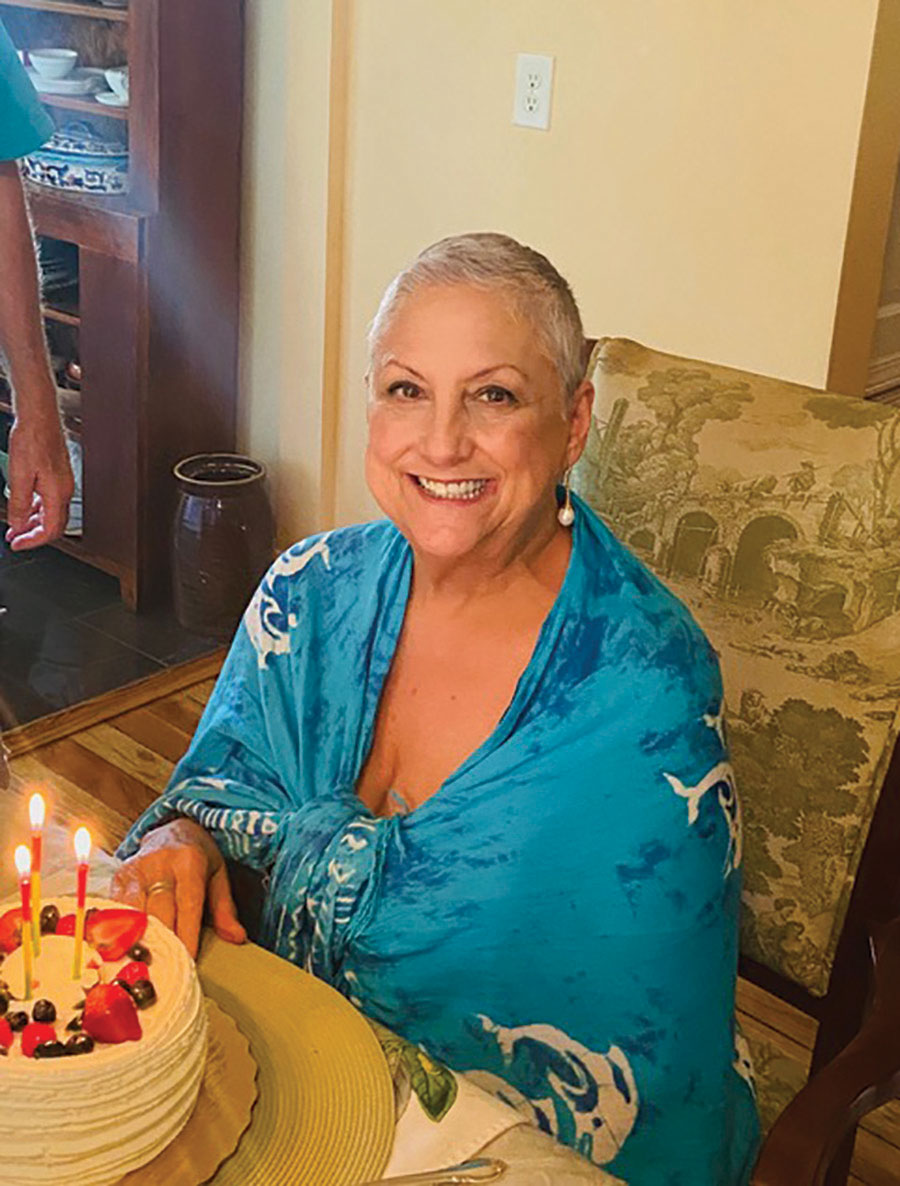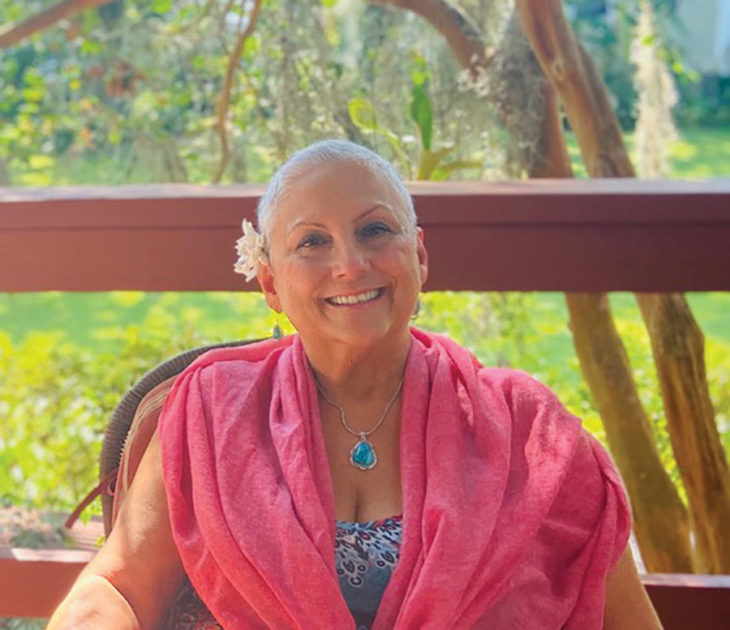In 2015, while presenting a program on Pascagoula’s civil rights movement, Renee Gautier-Hague suddenly felt like she was being stabbed.
“I finished the program but could barely drive home afterwards, as the pain was severe,” says Gautier-Hague, who retired four years ago from the Jackson George Regional Library System, where she worked in the history/genealogy department for 14 years. “Thus began my painful, difficult and frustrating eight-month search for a correct diagnosis.”
That quest took her to several doctors — including a neurologist, her primary care provider and an orthopedist. She was diagnosed with scoliosis, sciatica and costochondritis and encouraged to keep up with physical therapy, despite the pain, but found no relief.
After she returned to the orthopedic doctor, demanding answers for why she could barely walk, scans revealed lesions in several places. Soon after, at her primary doctor’s office, Gautier-Hague learned she had multiple myeloma — an incurable blood cancer for which the average life span is two to four years.
“I felt shocked and terrified, realizing cancer had been eating at my bones,” she says. “Simultaneously, I felt immense gratitude for the life that I’ve been given for 62 years. This thought brought light into the darkness, and I felt resolved to follow the light and devote myself to healing.”
At the University of Texas MD Anderson Cancer Center, she met with a specialist and started chemotherapy, to which she responded well — making her a viable candidate for a stem cell transplant.
“They gave me so much hope,” Gautier-Hague says, “and told me all about the new classes of drugs that have been discovered to help myeloma in the past decade.”
It wasn’t the first time the odds were against Gautier- Hague. Despite being diagnosed with endometriosis in her 20s, decreasing her chances of conceiving, Gautier-Hague went on to have three healthy children.
Once again, she would defy the statistics. For a few days after receiving a drug called Melphalan, which kills bone marrow, Gautier-Hague’s blood counts dropped so low she felt like she was dying. Then stem cells were infused back into her blood — bringing her back to life.


“It feels like you are being reborn,” Gautier-Hague says.
The transplant worked for Gautier-Hague, although it doesn’t for all multiple myeloma patients, and she left Houston thankful to be alive and committed to doing everything possible to sustain the remission. She has cleaned her environment and overhauled her diet, becoming a vegan who eats only organic, non-GMO whole foods.
She also has embraced alternative treatments and meets weekly online with a pastoral counselor. She begins each day with meditation, followed by a walk on the beach. Her husband, Doug, has retired, and they take their boat to the islands at least once a week.
Gautier-Hague credits cancer with making her a better person — one with more courage, patience, honesty, intelligence, confidence and self-esteem.
“Love casts out fear,” she says, “and while I did face the fear of pain and death, it elevated my understanding of life and deepened my love and appreciation for each moment as it unfolds.”


